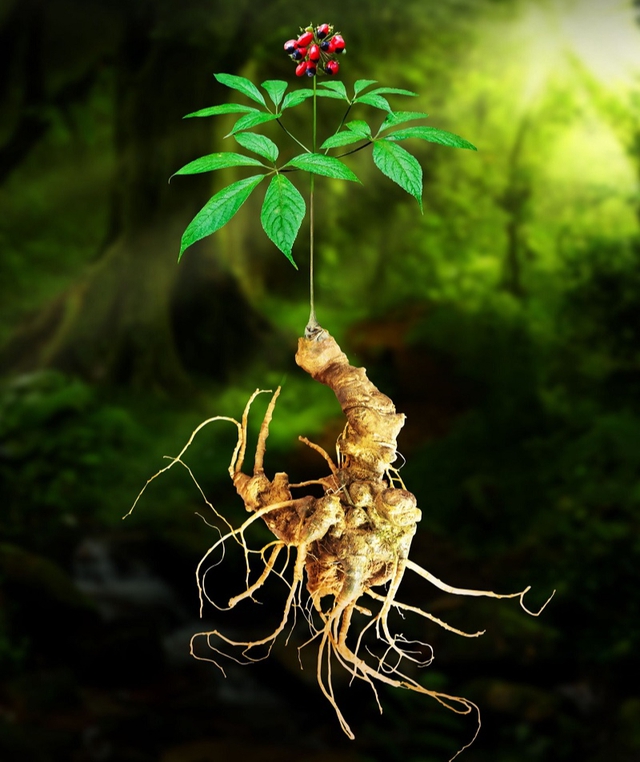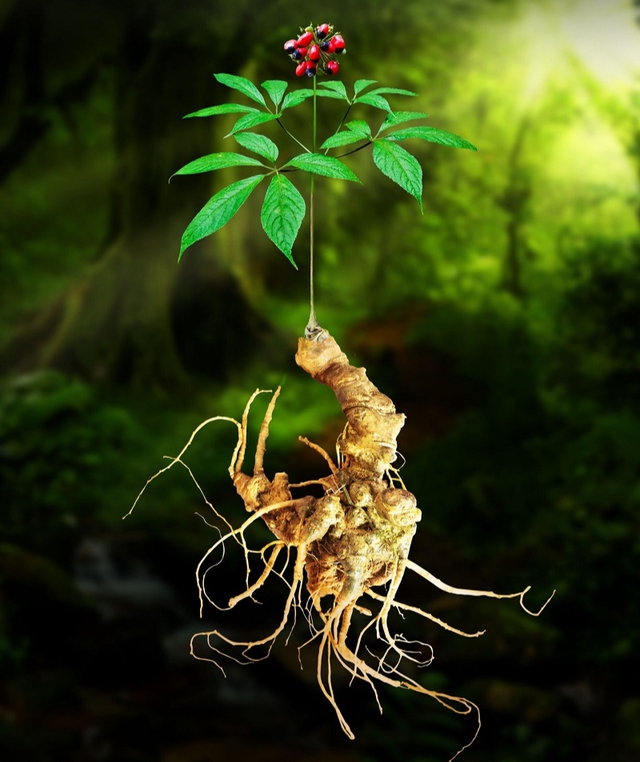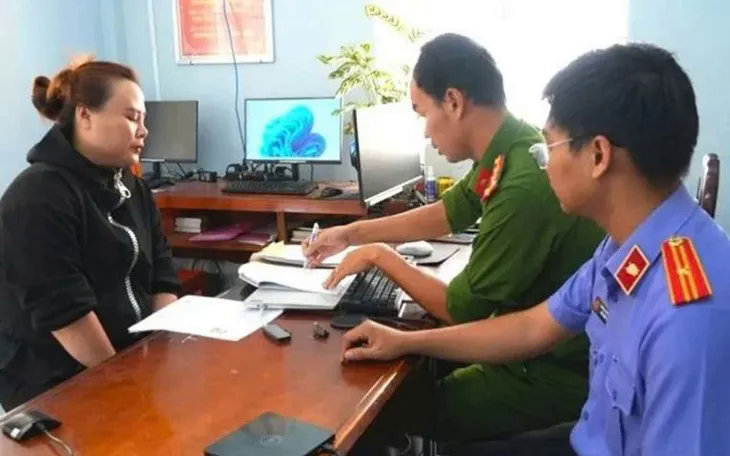On June 3, 2025, the Quang Nam province officially approved THACO Group to conduct surveys and establish a project for the production and processing of Ngoc Linh ginseng on a 1,000-hectare area in three mountainous districts: Nam Tra My, Bac Tra My, and Phuoc Son.
Mr. Tran Ba Duong, Chairman of THACO’s Board of Directors, stated that the company will survey 1,000 hectares of land in Quang Nam to develop an herbal medicine and Ngoc Linh ginseng growing area following the international GACP-WHO standard (WHO’s “Good Agricultural and Collection Practices for Medicinal Plants”). This will serve the production, processing, and export of the herb.

Image of Ngoc Linh ginseng – Vietnam’s National Treasure.
THACO aims higher as they target to expand the Ngoc Linh ginseng growing area to 5,000 hectares by 2027 and achieve an export turnover of USD 50 million for Quang Nam province.
The expansion of the Ngoc Linh ginseng (also known as Vietnamese ginseng) industry – a rare and endemic medicinal herb of Vietnam, dubbed the “National Treasure” – will enhance its economic value, conserve the precious gene source, create local jobs, and advance its research and application in medicine.
Ngoc Linh Ginseng: One of the World’s Rarest Medicinal Herbs
Vietnam boasts approximately 5,000 species of medicinal plants, including rare ones like Vu diep ginseng, Bach hop, Thong do, and Hoang lien gai. Notably, Ngoc Linh ginseng is among the rarest medicinal herbs globally, distinguished by its saponin content exceeding 50 – double that of many other ginseng varieties worldwide.
Saponin is the primary chemical component in ginseng, playing a crucial role in forming ginsenosides, which offer numerous health benefits. Ginsenosides positively influence the central nervous system, endocrine system, immune system, and metabolic processes while helping regulate bodily functions.
Ngoc Linh ginseng is listed in Group IA per the Government’s Decree No. 84/2021/ND-CP and Decree No. 64/2019/ND-CP. It is also included in Vietnam’s Red Book, indicating its endangered status at level E.
Given the precious medicinal value of Ngoc Linh ginseng, Vietnam encourages the protection of its habitat for natural population recovery. Simultaneously, efforts are made to propagate, cultivate, and conserve the original variety for economic development.
On June 6, 2023, the Prime Minister approved the “Program for the Development of Vietnamese Ginseng” per Decision No. 611/QD-TTg to harness the potential and value of Ngoc Linh ginseng. This program aims to establish a robust industry for the cultivation and processing of Ngoc Linh ginseng, with goals set for 2030 and a development orientation towards 2045.
Kon Tum and Quang Nam provinces are identified as key regions for the commercial-scale development and production of Ngoc Linh ginseng, falling within the country’s concentrated medicinal herb-growing areas.
In 2023, the Electronic Government Portal quoted the Prime Minister emphasizing the necessity of researching and refining existing models to optimize efficiency and ensure harmonious benefits for the State, people, and businesses. He advocated for strengthening the “6-House” linkage, encompassing the State, farmers, scientists, enterprises, banks, and distributors, to create a synergistic effect and foster the sustainable development of Vietnam’s ginseng industry.
Ngoc Linh ginseng (scientific name: Panax vietnamensis) thrives at altitudes ranging from 1,200 to 2,100 meters above sea level, flourishing under the shade of primary forests with high humidity, which facilitates its growth and accumulation of nutrients.
As planned, THACO will conduct surveys in Tra Linh, Tra Nam, and Tra Cang communes of Nam Tra My district, covering 500 hectares. Additionally, they will survey 300 hectares in Bac Tra My district and 200 hectares in Phuoc Son district. These areas meet the ideal conditions for Ngoc Linh ginseng’s growth, including altitudes between 1,500 and 2,500 meters, humus soil, and forest coverage ranging from 80 to 90%.
Digital Assets: ‘In the Absence of Regulation, the Realm of Digital Assets Remains a Grey Area’
The spokesperson for the State Securities Commission of Vietnam stated that, as of now, the country lacks specific regulations for digital and crypto-asset markets. While ownership statistics are derived from diverse methodologies and may not reflect absolute accuracy, the Vietnamese market holds significant potential in this arena.
“The Private Sector: Leading the Charge Towards a Low-Carbon, Green Growth Economy”
Although the nation’s economic growth model remains carbon-intensive, Vietnam’s private sector has begun to seize green growth opportunities. The private sector will also be pivotal in Vietnam’s efforts to reduce emissions and transition to a low-carbon economy.




















